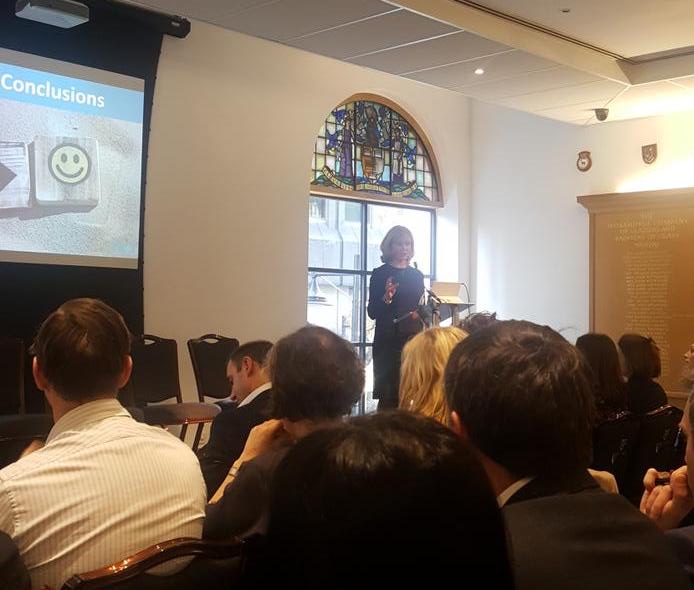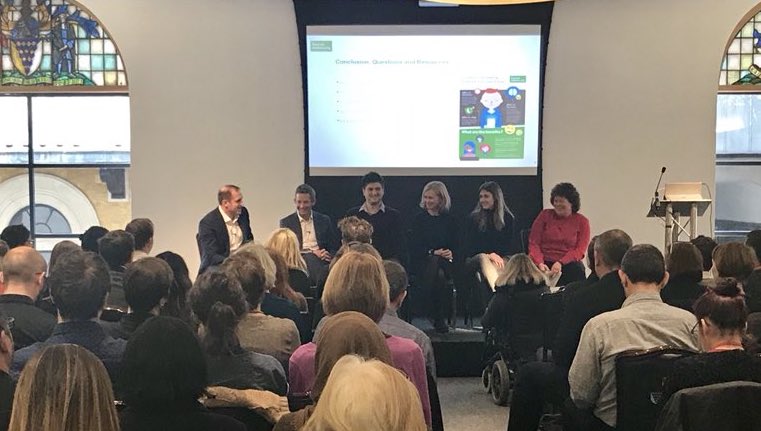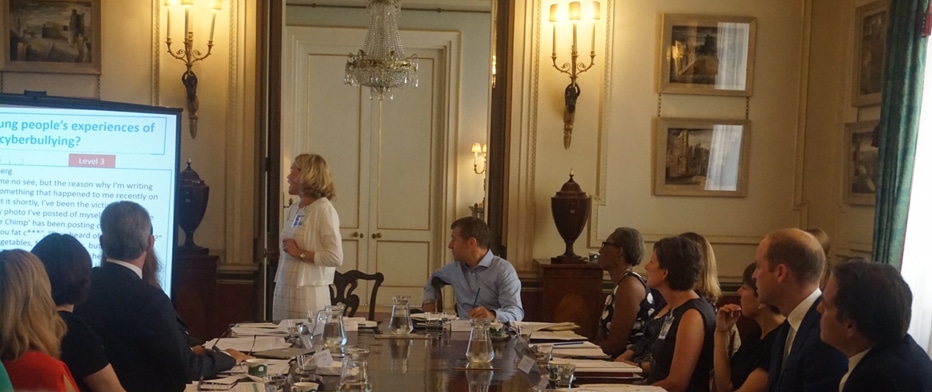Publications
We write many reports, papers and articles, although not all are published. Below is a list of recently published reports and papers, together with a brief summary, of some of our work carried out on behalf of our clients:
2024 GambleAware – New research finds children’s online spaces ‘saturated’ with gambling-like content and advertising
Family Kids & Youth carried out research on behalf of GambleAware July-November last year looking at the impact gambling has on children and young people considered to be vulnerable. We carried out 6 workshops in schools across the UK with 55 children and young people aged 11-17. Respondents included a mix of family income, gender and ethnicity, and included SEND and those with an Education, Health and Care Plan (EHCP). The research found that vulnerable children are more at risk of gambling, not necessarily understanding what gambling is, but engaging in a wide range of gambling activities, with a strong recall of gambling advertising. GambleAware published its report 21 April 2024, combining our research with two other studies run by our colleagues at Sherbert and CultureStudio that included 18 children under 11, and ‘affected others’- 16 children and young people affected by a close relative’s gambling. To protect children, Zoe Osmond, CEO of GambleAware, has called for more restrictions to be put on gambling advertising, including online advertising. The report can be seen here.
2024 Ofcom – FK&Y’s report ‘Understanding Pathways to Online Violent Content Among Children’ published 15 March 2024
Carried out by the FK&Y team between May-November 2023, ‘Understanding Pathways to Online Violent Content Among Children’ included 2 focus groups with professionals (teachers, specialists who work with vulnerable children, and youth social workers), 15 in-school workshops with a total of 232 children aged 8 to 17 from across the UK, and 15 in-depth interviews with children aged 12-16 identified as having had direct experience of violent content. All children who took part in the research had come across violent content online, mostly via social media, video-sharing and messaging sites and apps. For many this was before they had reached the minimum age requirement to use these services. Violent 18+ gaming content, verbal discrimination and fighting content were commonly encountered by the children we spoke to. Sharing videos of local school and street fights had also become normalised for many of the children. For some, this was because of a desire to build online status among their peers and followers; for others it was to protect themselves from being labelled as ‘different’ for not taking part. Many felt they had no control over the violent content suggested to them, or how to prevent it. This frequently made them feel upset, anxious, guilty – particularly given they rarely reported it – and even fearful. The adult professionals we spoke to also observed that cumulative exposure to violent content contributed to some children becoming socially and physically withdrawn in the offline world. The full report can be read here.
2023 Words Matter – FK&Y’s report for the launch of new charity ‘Words Matter’ published 13 September 2023
We were asked to carry out important qualitative and quantitative research with children and young people to identify the effect of verbal abuse on children and young people for Words Matter, a new charity launched in September 2023. Findings from the report can be read here.
2022 OMD and News International – FK&Y’s ‘The Real Britain: Youth’ report published October 2022
FK&Y was commissioned by OMD and News International to carry out extensive research with 7-21 year olds: ‘The Real Britain: Youth’. This included understanding online behaviour amongst SEND young people, English as a second language, and those living in areas of deprivation. Findings from the report can be read here.
2022 TIAH – FK&Y’s report ‘Careers in Agriculture and Horticulture’ published May 2022
Our work for TIAH (The Institute of Agriculture and Horticulture) included qualitative and quantitative research with 11-25 year olds, teachers and lecturers, parents and grandparents. This was looking at career aspirations, and areas that would attract young people into farming and horticulture, especially sustainability. We particularly talked to children in areas of deprivation and inner cities across the UK. The full report can be found here.
2022 DfE – FK&Y’s report ‘16-19 Learners experience of the COVID 19 pandemic’ published 12 May 2022
The Department for Education (DfE) commissioned FK&Y to explore learning and wellbeing of 16-19 year olds during the Covid-19 pandemic. Using the ONS ‘Index of Multiple Deprivation’, FK&Y carried out paired interviews with 16-19 year olds in deprived areas in England. The research explored young people’s experience of learning during this time, which included the educational recovery support that they had access to, as well as how this was implemented. Many young people had found online learning a challenge, including a disruptive home environment, a lack of practical learning and resources as well as difficulty with accessing online materials. The mental health of some young people was also impacted by the change to their learning environment. Not physically attending school restricted their routine of socialising with friends and demotivated them from completing work assignments. Young people also explained that not attending school had prevented them from taking part in traditional milestones that previous year groups had been able to enjoy. The full report can be read here.
2022 CoC Playful Minds – FK&Y’s report ‘Children’s perspectives on sustainability, UK’ for the Future Play Design Challenge 2022. Written on behalf of the CoC. Playful Minds, published 1 February 2022.
Each year CoC Playful Minds hosts its Future Play Design Challenge, and for 2022 the supporting theme was ‘sustainability’. To help build the background and objectives of the launch, FK&Y carried out focus groups with UK children aged 9-12 to explore their thoughts on climate change and sustainability. Much of the children’s knowledge of climate change is learnt through school, with family members, TV, and social media being key also. Many are familiar with climate change activists and influencers seen via social media. Making the world a better place to live is a key theme for children, with many not believing enough is currently being done to protect the environment. Girls are particularly interested in keeping wildlife safe, and boys are keen on using renewable energy wherever possible. All are concerned about deforestation and dislike the use of unnecessary packaging, aware that modern alternatives are already available. More information can be found here, and the full report can be read here.
2021 Digital Futures Commission – ‘Playful by Design: Free Play in a Digital World’ written on behalf of the Digital Futures Commission and the 5Rights Foundation, published 4 November 2021
FK&Y carried out research with children on behalf of the Digital Futures Commission, a three year project hosted by the 5Rights Foundation. The 5Rights Foundation works to create a digital environment fit for children and young people. The research looks at the way children play, both online and offline. The full report can be read here.
2019 Children’s Wellbeing and the Internet study – FK&Y presented new research at Ofcom’s children’s research event on the impact that social media and gaming has on children’s lives and wellbeing, published 30 January 2019
Dr Barbie Clarke presented FK&Y’s new research on the impact that social media and gaming has on children’s lives and wellbeing at Ofcom’s ‘Making Sense of Media’ event on Tuesday 29th January, hosted by Sharon White, Ofcom’s Chief Executive. The research found that children and young people can get upset if parents break their own rules when it comes to going online and using tech devices. The presentation can be found here.
 Barbie also took part in the expert panel which discussed how children can be protected online, the need for global co-operation, and what more needs to happen to reach a safe place for children and young people online. The event brought together representatives from government, academia, research agencies, the voluntary sector and the media industry to showcase and debate the very latest research on children’s relationship with media today.
Barbie also took part in the expert panel which discussed how children can be protected online, the need for global co-operation, and what more needs to happen to reach a safe place for children and young people online. The event brought together representatives from government, academia, research agencies, the voluntary sector and the media industry to showcase and debate the very latest research on children’s relationship with media today.

2017 The Cyberbullying Taskforce – FK&Y’s reports on behalf of The Royal Foundation, published 21 April 2017.
Cyberbullying can impact the mental health of children and young people. The Cyberbullying Taskforce was set up by the Duke of Cambridge and the Royal Foundation in May 2016, bringing together industry and experts to develop a single up-to-date resource providing practical support, advice and information for those affected by cyberbullying.

The Taskforce commissioned FK&Y to carry out research with young people to explore their personal experience of cyberbullying, how they define cyberbullying, what support they would like to deal with cyberbullying and ways in which social media companies can help. Qualitative research was carried out with a total of 146 young people aged 12-15 through a series of 6 workshops held in schools. This was followed by quantitative research with a nationally representative online survey of 1,004 11-16 year olds across England, Scotland, Wales and Northern Ireland.
A key finding is that not all young people recognise cyberbullying. Whilst over half (55%) reported experiencing something online that had upset or really hurt them, nearly two-thirds of these young people (65%) did not define these experiences as cyberbullying. Young people’s negative experiences online are frequent and recurrent – particularly amongst girls.
Download the qualitative research here.
Download the quantitative research here.
2017 Social Mobility Commission – FK&Y’s report ‘Helping Parents to Parent’ written on behalf of the Social Mobility Commission was published 20 February 2017.
The report considers effective interventions that can produce the most effective outcomes for all families. It assesses evidence on parenting behaviours and the extent to which public policy can support parents. The research shows that public policy can have a real impact on parenting behaviours and achieve positive outcomes for children. Intervention can develop parental management skills and confidence, build healthy family relationships and enhance children’s social, behavioural and cognitive development and wellbeing. One of the report’s key findings is that there is currently a lack of long-term evidence and studies about what parenting interventions work best.
More information can be found here and the full report can be read here.
2016 The Money Advice Service – FK&Y’s report ‘Engaging with 16-24 year olds’ written on behalf of The Money Advice Service was published 1 September 2016.
Family Kids & Youth was commissioned by The Money Advice Service to undertake a literature review to analyse the relative strengths of different engagement techniques and methodologies with this hard to reach group. FK&Y analysed 30 reports, reviews and sources and found common themes emerging from successful campaigns.
The key findings of the extensive review found that approaches need to be personalised and holistic, co-creation was effective (both near-to-peer and peer-to-peer), online campaigns on multiple platforms work as do approaches via family, especially those with an appreciation of lifestyle and attitudes and those that highlight short term consequences and non-ethical behaviour. Approaches that were less successful include prescriptive campaigns that emphasise abstinence and zero tolerance.
The report can be found here.
2011 – 2016 Techknowledge for Schools – We have carried out research for the educational charity (formerly Tablets for Schools) since 2011, looking at the use of technology in education, especially one-to-one devices. Research has included an evaluation of use; procurement; benefits and challenges; skills pupils develop for future employment; distraction and internet safety.
See all Techknowledge
for Schools publications
2015 Youth United and the Cabinet Office – The Youth Social Action Journey Fund Programme was funded by the Cabinet Office to create new social action opportunities in areas of high deprivation and low provision and improve the link between Youth United members and the National Citizen Service (NCS). FK&Y carried out research with 10 to 20 year olds taking part in the programme and monitored attitudes and behaviour change over the course of a year. The full report can be downloaded here and infographics here.
2015 The IKEA Play Report – FK&Y carried out research in 12 countries, includes over 16,000 interviews with parents of 0-16 year olds, over 6,000 interviews with children aged 7-12 and over 6,000 interviews with young people aged 13-18. The research looks at time pressure and organisation; safety, concern and risk aversion; attitudes to friends and family; the use of media devices; family time together and attitudes to play. The research can be downloaded here.
2015 Committee of Advertising Practice (CAP) – FK&Y wrote this Literature Review of Research on Online Food and Beverage Marketing to Children on behalf of CAP. Published February 2015 it presents a global review of current online marketing practices and research that looks at the impact on children, written with Professor David Buckingham, University of Loughborough, as our advisor.
2013 British Association of Counselling and Psychotherapy (BACP) – Dr Barbie Clarke, written with colleagues at the Faculty of Education, University of Cambridge. This review looks at published research on counselling and psychotherapy with children and young people: a systematic scoping review of the evidence for its effectiveness.
2012 Advertising Education Forum, Brussels – Digital Marketing and Advertising to Children. This literature review written by FK&Y sheds light on what global academic research has found on children’s interaction with digital marketing communications.
2012 International Journal of Market Research (IJMR) – ‘Researching children: are we getting it right? A discussion of ethics’. Written by Dr Barbie Clarke and Professor Agnes Nairn, this award-winning paper looks at the ethical issues that arise when including children and young people in research. Winner of the IJMR Collaborative Award and short-listed for the prestigious MRS Silver Medal.
2011 The Advertising Association – Children and Commercial Communications: A Literature Review.
Child psychology, recent developments in neuroscience, sociological studies, social competence, and children’s understanding of advertising are considered. The review concludes that while children can recognise advertising at a young age (4- 5) it is not until they reach middle childhood (age 8-12) that children understand advertising; the commercial intent of advertising however is not understood until adolescence, when children are aged 12 plus.
2011 The Advertising Association – Exploring the Attitude of Children and Parents towards Advertising and Marketing. The research includes qualitative and quantitative research with parents and children. Parents express several concerns about their child’s wellbeing including safety, education, future job prospects, but concern about marketing and advertising to children is not rated as a prime concern and children appear to enjoy much advertising.
2010 Professor Colleen Mclaughlin and Dr Barbie Clarke Relational matters: A review of the impact of school experience on mental health in early adolescence. Educational & Child Psychology Vol.27 No. 1 91
2010 Dr Barbie Clarke, Marc Goodchild & Andrew Harrison The Digital World of Children and Young Adolescents: Children’s Emotional Engagement with Digital Media. ESOMAR Congress 2010
2009 Dr Barbie Clarke Early Adolescents’ Use of Social Networking Sites to Maintain Friendship and Explore Identity: Implications for Policy.Policy & Internet Vol.1: Iss. 1, Article 3 (2009)
2009 Dr Barbie Clarke Friends Forever: How Young Adolescents Use Social-Networking Sites. Society Online 1541-1672/09/
2009 Dr Barbie Clarke The Way Children are Communicating Emotionally using Social Networking Sites. BACP April 2009


